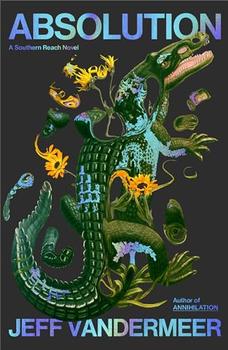Book Club Discussion Questions
Please be aware that this discussion guide will contain spoilers!
For Liv Arnesen and Ann Bancroft, Antarctica was the ultimate destination, a
savagely beautiful landscape and a unique test of character and skill - the
defining moment in their adventure careers.
No Horizon Is So Far is the true
story of Arnesen and Bancroft's inspiration, organization, and hard work to
become the first women to cross Antarctica by foot. As former schoolteachers,
they considered the expedition to be not only a personal goal but an educational
tool, reaching more than three million children through the course of their
journey. As women, they made history, challenging gender stereotypes and
breaking barriers for future generations. As teammates, they proved to the
world, themselves, and each other that no obstacle is too great, no dream ever
out of reach.
Inspiring and exciting,
No Horizon Is So Far is narrated by both Arnesen and
Bancroft, each of whom provides an intimate perspective on the shared joys and
frustrations of their 2,000-mile, three-month trek. Whether pitching their
mission to doubtful CEOs, coordinating and financing hundreds of pounds of
equipment, or finally hoisting their flags at the South Pole, the authors are
lively, honest guides. The photos, maps, and detailed equipment lists they
include in the book help readers truly grasp the scope of their expedition. In
addition, comments from teachers and associates around the world as to how the
journey affected their own lives are a testament to Arnesen and Bancroft's
success.
And yet, throughout their arduous trek, the authors are forced to redefine
what success means to them, and what they'll gamble to achieve it. A desire to
beat the odds is at the core of No Horizon Is So Far, as Arnesen and Bancroft
trace the roots of why they came to Antarctica to risk frostbite, injury, and
death on a daily basis. From their childhood love of adventure to the challenges
they overcame as female athletes in a predominantly male field, the authors'
passion and drive fill every page and make their expedition's results all the
sweeter.
- Discuss the similarities and differences in personality between Liv and Ann.
How do these affect their approach to the journey? Give examples of their
interacting successfully and of their being at odds with each other.
- What is it that drives people to explore, to seek out danger and push
themselves to extremes? What is the stereotype of an "explorer" and how do Liv
and Ann relate to that image?
- Liv writes, "both of us were fascinated by the way Antarctica had tested
Shackleton . . . we had both been enchanted with the idea of facing that same
test" (p.23). What does that test reveal about Liv and Ann? Why does hardship
demonstrate parts of our personalities that are otherwise hidden? Which is
truer-the revealed self or the everyday self?
- "Good team members are hard to find" (p.13). What traits define a good
team member, according to the authors? Would you be a good team member? Between
Ann and Liv, who would make a more suitable teammate for you, and why?
- Ann and Liv bring mementos, such as poems and letters, to provide comfort
from the isolation of Antarctica. What would you bring to remind you of home?
What are the benefits of the remoteness that Ann and Liv experienced?
- Both of the authors find Antarctica to be a compelling and beautiful
landscape. What was your reaction to Antarctica? Does where you grew up affect
your opinion in any way? Are there any remote parts of the world that you would
like to visit?
- One of the issues Liv and Ann face is the gender bias that women aren't as
tough or capable as men. Have you ever been the victim of stereotyping? How did
you react? Do you ever prejudge a person or behavior based on gender?
- In Antarctica, one is constantly at risk of injury, frostbite or death;
explorers must be constantly on guard. As a result, Liv and Ann seem both
fearless and extremely cautious. How does fear both protect and limit us? Do you
have any fears or phobias? How have they affected your life?
- No Horizon Is So Far is alternately recounted by Liv and Ann, with
occasional contributions from Cheryl Dahle. How did you feel about this
narrative style? Were there any instances where it helped or hindered your
reading? Did you find a marked difference between the voices, and, if so, did
you prefer one in particular?
- Liv and Ann failed to achieve some of their goals and exceeded their
expectations for others. What is your opinion of how each woman handled these
results? Do you believe that ultimately their expedition was a success? How do
you determine success?
Unless otherwise stated, this discussion guide is reprinted with the permission of Penguin.
Any page references refer to a USA edition of the book, usually the trade paperback version, and may vary in other editions.




